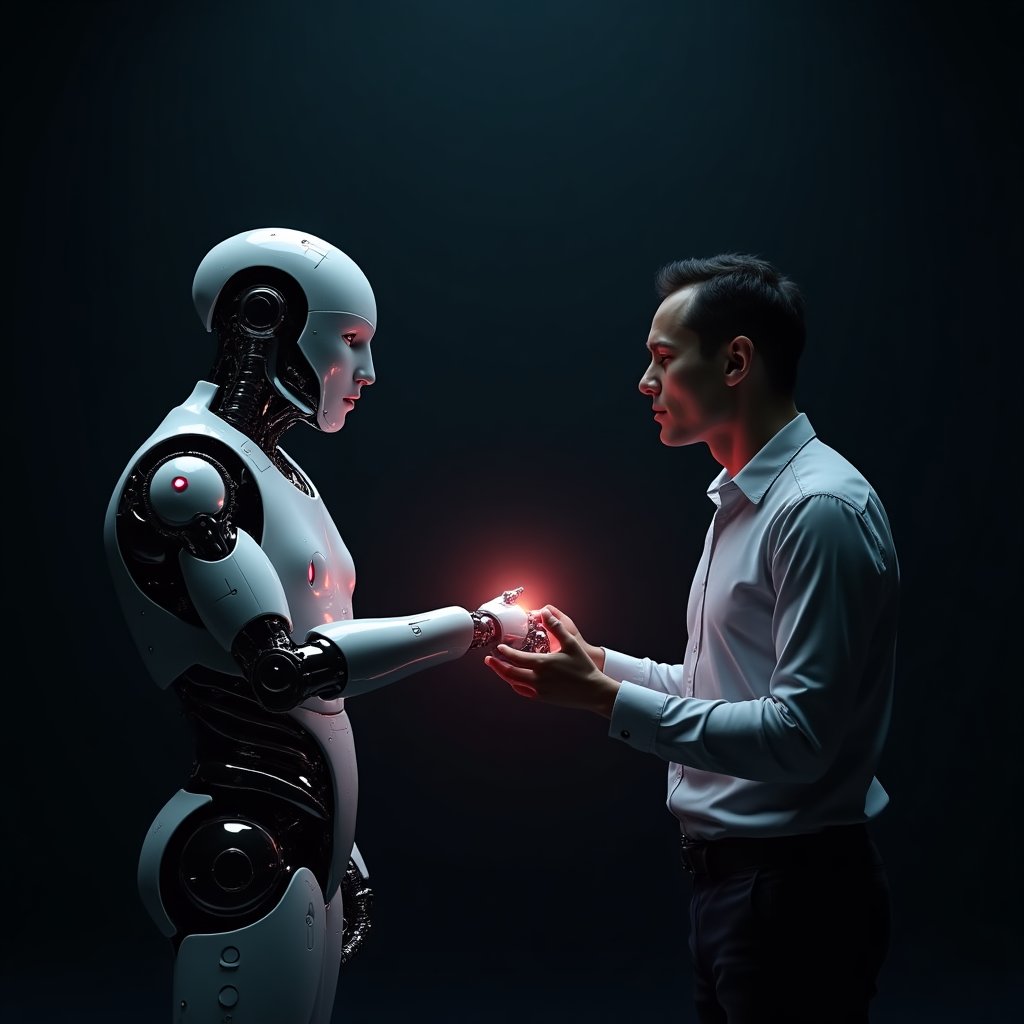As we start 2025, whispers of artificial intelligence (AI) taking over the roles traditionally carried out by human software engineers are becoming more like a resounding chorus. Mark Zuckerberg, CEO of Meta, recently hinted at a future where AI writes a significant amount of the code in our applications. To many, this might sound like a tech apocalypse, conjuring images of robots sitting in sleek office chairs, cherishing their morning cup of java. But is it really as simple and certain as the looming shadow of sentient machines crafting our digital world? Let's unravel the nuances wrapped in Zuckerberg's bold prediction and what it entails for the future of human engineers.
TheAIGRID brings an intriguing analysis on the subject, offering a fresh perspective that goes beyond the sensationalist headlines predicting the demise of human coders. Reflecting on marketing from big tech—the likes of Amazon and OpenAI—this article will guide you through the highs, the lows, and everything in between. Join me on this journey as we navigate the futuristic waters of AI and see whether it's a cruise to automation paradise or a stormy upheaval threatening jobs as we know them today.
A Bold New World: Mark Zuckerberg's Vision
In a video that's been shared widely among tech communities, Mark Zuckerberg posited that by 2025, Meta and other companies could introduce an AI capable of performing mid-level software engineering tasks. Imagine an AI capable of writing and evolving code, carving its own digital masterpieces. It sounds like the beginning of a science fiction novel, doesn't it? This isn't just a dystopian fantasy; it’s a reality that’s closer than we might think.
But hold your horses—or rather, your algorithms. There’s a caveat: At first, this AI would be ludicrously expensive to run. The challenge then lies in making these marvels of tech efficient on a large scale. Zuckerberg imagines a future where AI engineers outpace human engineers in the quantity and complexity of code produced. However sophisticated this vision might sound, it's time we peel back the layers to understand what lies beneath.
The AI Takeover: A Complimentary Perspective
Enter TheAIGRID's video that flips the narrative on its head. Those who take Zuckerberg's words at face value might declare impending doom for human coders, but the channel argues there's more than meets the eye. Referencing past statements from business giants, including an interesting leak from Amazon's Cloud Chief—who hinted at AI doing much of the heavy lifting in coding realms—TheAIGRID provides an analysis that’s both illuminating and reassuring.
Amazon made waves with assertions recorded during a private chat in June 2024, fueling debates with its leaked contents. The statement suggested developers might stop coding as soon as AI takes over, transforming the landscape of software engineering. TheAIGRID acknowledges these fears yet encourages a deeper dive. There's no panicking here; instead, there’s a call to understand the intricate dynamics at play.
Continuous Improvement and Economic Impact
Fast forward to discussions centered around the Software Engineering Bench (SWE Bench) benchmarks. A glance reveals a meteoric rise—from a 7% efficiency in early 2024 to an astounding 62% nearing the end of the year. These benchmarks, akin to a grueling Olympiad for coding prowess, are vital as they project AI's potential in real-world coding-improvement over mere months.
However fascinating, let's take another step back to consider implications from an economic standpoint. The cost of running advanced models is a notable bottleneck. The arithmetic of cost versus benefit is complex, especially when such AI powerhouses need to be cheaper than the traditional roles they aim to replace. Could this hullabaloo prove economically viable? Or are we awakening the Kraken of cost without proper forethought?
Not So Fast—The Jevons Paradox Explained
Ah, the Jevons Paradox: a fascinating principle that says when something becomes more efficient or cheaper, its use actually increases. Consider this paradox's application to AI-enhanced coding. By lowering the barriers to entry, software development could spread like wildfire. With easier development comes increased demand, and with demand, a vibrant market for software experts to oversee this thriving EMPIRE.
The cost-efficiency of AI leads to more app development, startups, and platforms sprouting up like weeds—albeit very techno-savvy ones. Enter the stewards of this new age: software engineers giving these AI creations structure, purpose, and focus. They’ll ensure AI-generated code doesn’t wander into buggy oblivion. So perhaps it’s not the end, but a new dawn.
The Human Factor: Creative Mastery Meets AI Parallelism
While some push a narrative of AI replacing humans entirely, a deeper understanding suggests augmentation, not obsolescence. Real-world collaboration between humans and AI is more akin to a duet, rather than a monologue. AI systems allow developers to focus on innovation, creativity, and problem-solving, while the code monkeys—now with digital rather than organic bananas—take care of the grunt work.
Apple’s recent job listings demand expertise in AI-agent-based frameworks like Langchain. This, alongside findings from the World Economic Forum predicting that software and application developers will rank among the fastest-growing jobs by 2030, signals an evolution rather than a revolution in software engineers’ roles.
As the final note rings out in this symphony of change, remember it’s less about AI versus humans and more about humans empowered by AI. The question remains: Where do you fit in this evolving tapestry? Are you ready to embrace the change or step back into the shadows? Join the discussion!
The Philosophical Reflection
As we teeter on the verge of an AI-induced evolution, let's ask ourselves: What does the future hold for us all? Could AI be the key to unlocking new heights yet unimagined? What responsibilities do we assume in this brave new world, and how do we ensure our creations align with the values we hold dear? Share your thoughts in the comments below.
If your curiosity piqued, consider joining the iNthacity community—a "Shining City on the Web" eager for inhabitants ready to navigate tomorrow’s digital society. Engage, participate in delectable debates, and share your insights.
Wait! There's more...check out our gripping short story that continues the journey: The Iron Threads of the Future
Disclaimer: This article may contain affiliate links. If you click on these links and make a purchase, we may receive a commission at no additional cost to you. Our recommendations and reviews are always independent and objective, aiming to provide you with the best information and resources.
Get Exclusive Stories, Photos, Art & Offers - Subscribe Today!


























1 comment